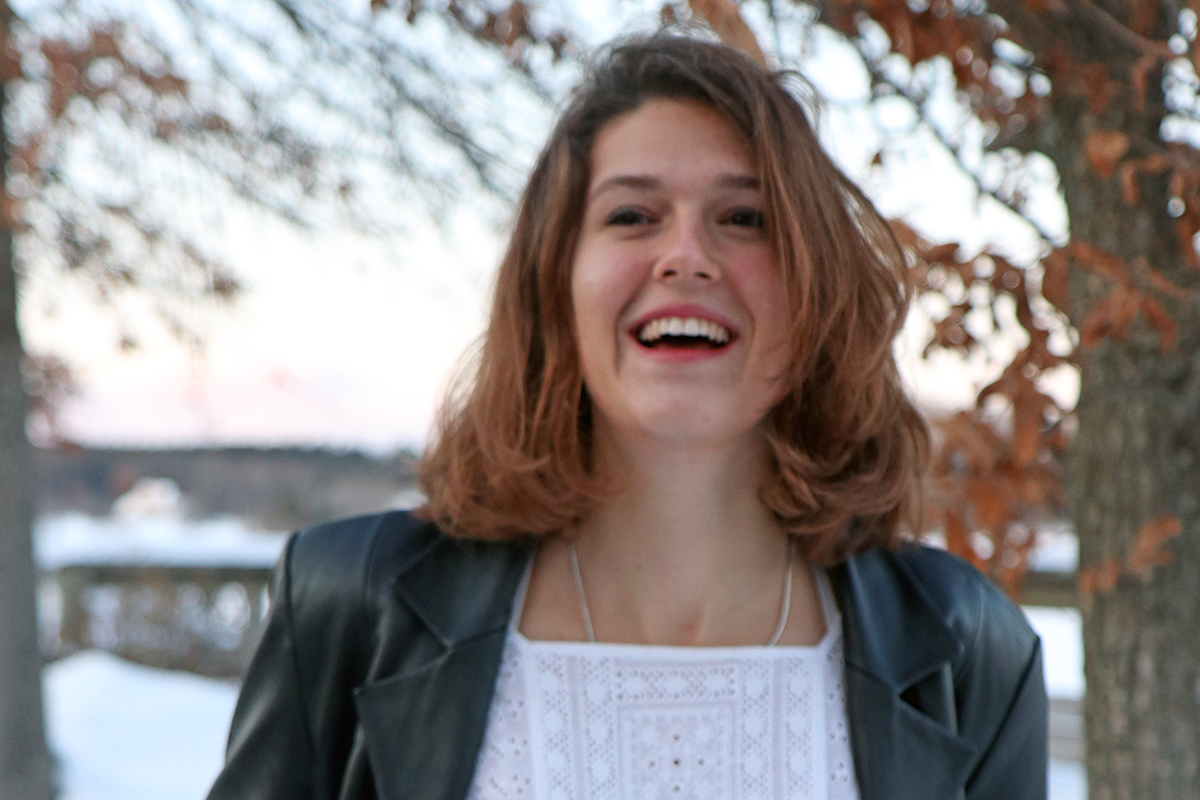The goal was to create a syllabus or learning guide students can use in a group setting or individually to get an overview of the history of whiteness."
Lilly Pinciaro

Learning to install sheetrock wasn’t on senior Lilly Pinciaro’s original spring-term to-do list. But in between online classes and on weekends, she pitched in on projects to finish the family basement and plant a garden. “Missing out on the community aspect of class was difficult,” she says, but, having spent the fall term in France, the “silver lining” of studying from home was the quality time she spent with her parents and three younger siblings.
Taking a break from traditional classroom learning was already on Pinciaro’s agenda. Accepted early decision to Northeastern University in December, she immediately deferred to fall 2021 — in part, she says, to help her “get clarity” on her goals. A former co-head of the Academy’s Democratic Club, Pinciaro will begin her gap year volunteering for Alexis Simpson’s campaign for the New Hampshire House of Representatives.
Growing up in New Castle, New Hampshire, a small coastal town with a predominantly white population, race wasn’t something Pinciaro had previously focused on. But one assembly during her lower year featuring Anthony Ray Hinton, a Black inmate wrongly imprisoned on death row for 30 years, inspired her to join one of Exeter’s Equal Justice Initiative trips to Selma and Montgomery, Alabama. Daily Harkness-style discussions and programming centering on racial inequality and mass incarceration in America cemented her desire to become more politically active.
“I’ve always been taught that the world was fair, and learning that that is very clearly not true was disappointing,” she says. “Every night we would have a discussion back at the hotel where we were staying. Sometimes we would stay up until like 10:30 p.m. talking about what we learned that day, or just kind of the new perspectives that we were seeing and hearing. Spending so much time expressly focusing on topics of race in America really solidified my interest and my understanding that it’s a very pressing issue that we need to focus on.”
Back on campus, Pinciaro joined committees for MLK Day and Exonian Encounter (a club that establishes community events to embrace difference) and attended meetings of the Afro-Latinx Exonian Society. “Through my extracurricular activities and the people I’ve surrounded myself with,” she says, “I’ve spent several years learning about racial injustice and then also combating it.” In her upper year, Pinciaro collaborated with Tatum Schutt ’20 and Rose Coviello ’20 to start the campuswide Anti-Racist Alliance to engage white students in racial justice initiatives through discussion and self-education. Though the Alliance has since folded, that work formed the basis of Pinciaro’s and Coviello’s joint senior project: “Whiteness, White Supremacy and Antiracism in the United States: A Learning Guide for High School Students Who Hold White Privilege.” “The goal was to create a syllabus or learning guide students can use in a group setting or individually to get an overview of the history of whiteness,” she says.
Pinciaro plans to build a website around the project to reach a larger audience and hopes to see the guide adopted as part of an Office of Multicultural Affairs-led discussion group or as the basis of a new class. “For me, the biggest takeaway was that this work is more important than ever,” Pinciaro says. “White people need to do the work of self-examination and self-reflection and then educate their communities.”
— Sarah Zobel


